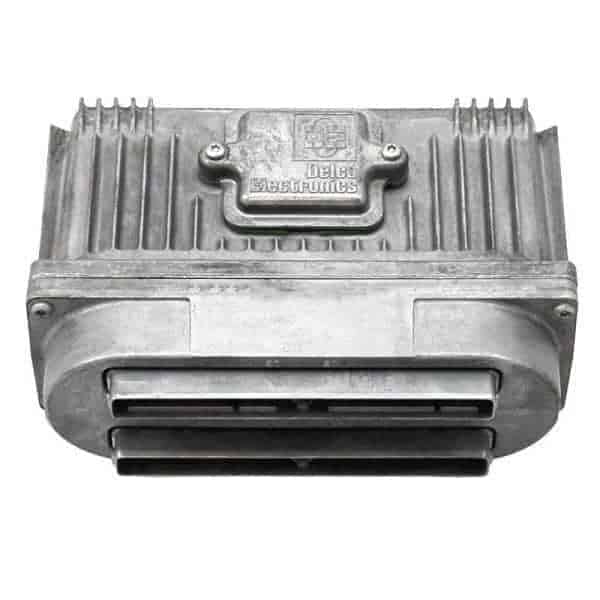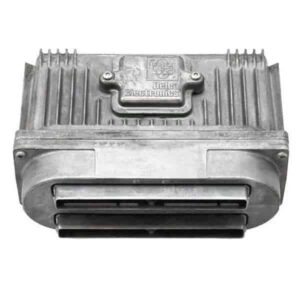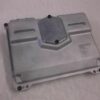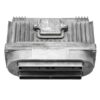Restore Peak Performance to Your 1996 GM Vehicle
Is your trusty 1996 Chevrolet Corsica or other GM vehicle suddenly running rough, stalling, or refusing to start? A failing Powertrain Control Module (PCM) is often the culprit behind these frustrating and unpredictable issues. As the central computer for your engine and transmission, a faulty PCM can cause a cascade of problems, from poor fuel economy to a complete no-start condition. This replacement PCM, part number 16211539, is the definitive solution to restore your vehicle’s original reliability and drivability.
We take the guesswork and hassle out of the repair process. Unlike a generic module from a parts store or salvage yard, each unit we ship is professionally programmed to your vehicle’s specific Vehicle Identification Number (VIN). This critical step ensures that all factory settings for your engine, transmission, and emissions systems are perfectly matched. We install the latest GM software updates, which can resolve underlying drivability issues you might not have even known were software-related. This is the closest you can get to a brand-new module, providing a reliable, long-term fix for your 1996 Corsica PCM.
Case Study: A Tricky Diagnosis
I remember a 1996 Buick Regal that came into the shop with an intermittent stalling problem that was driving the owner crazy. He’d already replaced the fuel pump and filter, but the car would still die randomly at stoplights. After hooking up my scanner, I noticed the live data for the crankshaft position sensor would drop out just moments before the engine quit, yet the sensor itself tested fine. This pointed to an internal failure in the PCM. The module’s internal processor was failing under heat soak. We installed a VIN-programmed PCM, and the car ran perfectly. It’s a classic example of how a failing 1996 Corsica PCM or its equivalent can mimic other component failures, making accurate diagnosis key.
Common Signs of a Failing Control Module
If you’re experiencing any of the following, a faulty PCM could be the reason. In my 20+ years of experience, these are the most frequent symptoms I’ve seen tied to a failing module in this generation of GM vehicles.
- ✔ Unexplained Check Engine Light illumination
- ✔ Diagnostic Trouble Codes (DTCs) such as P0601 (Internal Control Module Memory Check Sum Error) or P0605 (Read Only Memory Error)
- ✔ Engine stalling, stumbling, or hesitating for no apparent reason
- ✔ Harsh or erratic automatic transmission shifting
- ✔ A complete no-start condition where the engine cranks but won’t fire
- ✔ Noticeable decrease in fuel mileage
- ✔ Failure to pass an emissions test
A Straightforward Guide to Installation
Replacing the PCM on these vehicles is a job most DIY mechanics can handle with basic tools. Our pre-programming service means no expensive dealer trips are needed after installation.
- Safety First: Disconnect the negative terminal from your vehicle’s battery and secure it away from the post to prevent accidental contact.
- Locate the PCM: On most of these models, the PCM is located in the engine bay, often attached to the air filter housing or on the firewall. It’s a silver metal box with several large electrical connectors.
- Disconnect the Connectors: Carefully unlatch and remove the electrical wiring harnesses from the old PCM. Inspect the terminals for any corrosion or damage.
- Remove the Old Module: Unbolt the old PCM from its mounting bracket. Keep the hardware as you will reuse it.
- Install the New Module: Mount your new, VIN-programmed PCM onto the bracket and secure it with the original hardware.
- Reconnect Everything: Firmly plug the wiring harnesses back into the new module until they click into place. Reconnect your vehicle’s negative battery terminal.
- Final Step: Some vehicles may require a security relearn procedure, which typically involves turning the key to the ‘ON’ position for 10-15 minutes. Consult your vehicle’s service information for specific steps if needed.
Verified Vehicle Compatibility
This module is a direct-fit replacement for a wide range of 1996 General Motors vehicles. It is compatible with original equipment part numbers 16211539, 88963800, and 16231853. Please confirm your vehicle is on the list below:
- 1996 Achieva (3.1L)
- 1996 Beretta (3.1L)
- 1996 Bonneville (3.8L)
- 1996 Century (3.1L)
- 1996 Ciera (3.1L)
- 1996 Corsica (3.1L)
- 1996 Cutlass (3.1L & 3.4L)
- 1996 Eighty Eight (3.8L)
- 1996 Grand Am (3.1L)
- 1996 Grand Prix
- 1996 LeSabre (3.8L)
- 1996 Lumina Car (3.1L & 3.4L)
- 1996 Lumina Van (3.4L)
- 1996 Monte Carlo
- 1996 Ninety Eight (3.8L)
- 1996 Park Avenue (3.8L)
- 1996 Regal
- 1996 Riviera (3.8L)
- 1996 Silhouette (3.4L)
- 1996 Skylark (3.1L)
- 1996 Trans Sport (3.4L)
Frequently Asked Questions
Do I need to do any programming or flashing myself?
No. This is the biggest benefit of our service. We program the module with the latest GM software using the VIN you provide during checkout. It arrives ready for installation, saving you a costly trip to the dealership.
How do I provide my VIN?
After you complete your purchase, you will receive instructions on how to send us your 17-digit VIN. We cannot ship your part until we have this information to ensure correct programming.
Is this part the same as an ECM or ECU?
Yes. For this vehicle generation, the terms Powertrain Control Module (PCM), Engine Control Module (ECM), and Engine Control Unit (ECU) are often used interchangeably to refer to the same part that manages engine and transmission functions.
Where is the PCM located on my 1996 Corsica?
On the 1996 Chevrolet Corsica, the PCM is typically located inside the engine compartment, mounted near the air cleaner assembly. It is a silver-colored metal box with large multi-pin connectors.
Will this fix my car’s hard shifting problem?
A failing PCM is a very common cause of erratic shifting, delayed engagement, and other transmission issues because it directly controls shift points and line pressure. While other issues like bad solenoids can cause similar problems, replacing a known-bad PCM is often the solution.



